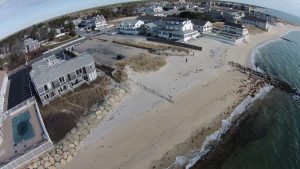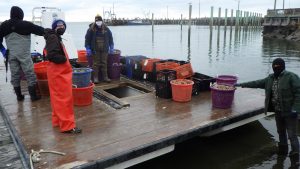Search results for: VIPREG2024 how to get free promo code in 1xbet Philippines
Getting a Leg Up on Floodplain Management
Providing guidance to regulators and builders on floodplain management is part of Woods Hole Sea Grant’s mission to enhance the practical use and conservation of coastal and marine resources. When it comes to building in a floodplain – areas at risk of flooding after significant rainfall – there are myriad regulations set by local, state,…
Read MoreShucked Oyster Rapid Response Program
RAPID RESPONSE: Assisting Shellfish Growers Impacted by COVID-19 Making In-roads Toward a Shucked Oyster Market in Massachusetts Overview With the arrival of COVID-19 and the social distancing measures to mitigate its spread including the closure of restaurants, sales of oysters have plummeted. With little access to their traditional markets, shellfish aquaculture businesses and the related…
Read MoreResources for Educators & Students
Resources for Educators and Students Adaptations and Climate Change Expand How Whales Change the Climate: Video from Sustainable Human showing whales’ role in the ecosystem and climate. Port Townsend Marine Science Center- Orca Bone Atlas: This is a great resource that shows an Orca skeleton and allows you to see 3-D views of various parts of the…
Read MoreWHOI-R-91-001 Fenwick, J. Science Willing &
WHOI-R-91-001 Fenwick, J. Science Willing &
Read MoreState of Wellfleet Harbor Conference Planned
The annual State of Wellfleet Harbor Conference opens this Saturday, November 6 from 10-11:15 a.m., the first of three live Saturday webinars this month. The conference is free and all are welcome. Woods Hole Sea Grant Fisheries and Aquaculture Specialist Abigail Archer is a moderator for the conference. This Saturday, Owen Nichols with the Center…
Read MoreUpdate on K-12 Activities
March 2018 — The Woods Hole Sea Grant Education Program (WHSGEP) in collaboration with WHOI will again be offering its semi-annual teacher workshop, “Topics in Oceanography”. These workshops happen in the spring and fall and are designed to allow teachers to interact with our oceanographers, either visit their lab or go on a local field…
Read MoreWHOI-R-07-001 Valentine P.C. Ecological Ob
WHOI-R-07-001 Valentine P.C. Ecological Ob
Read More

